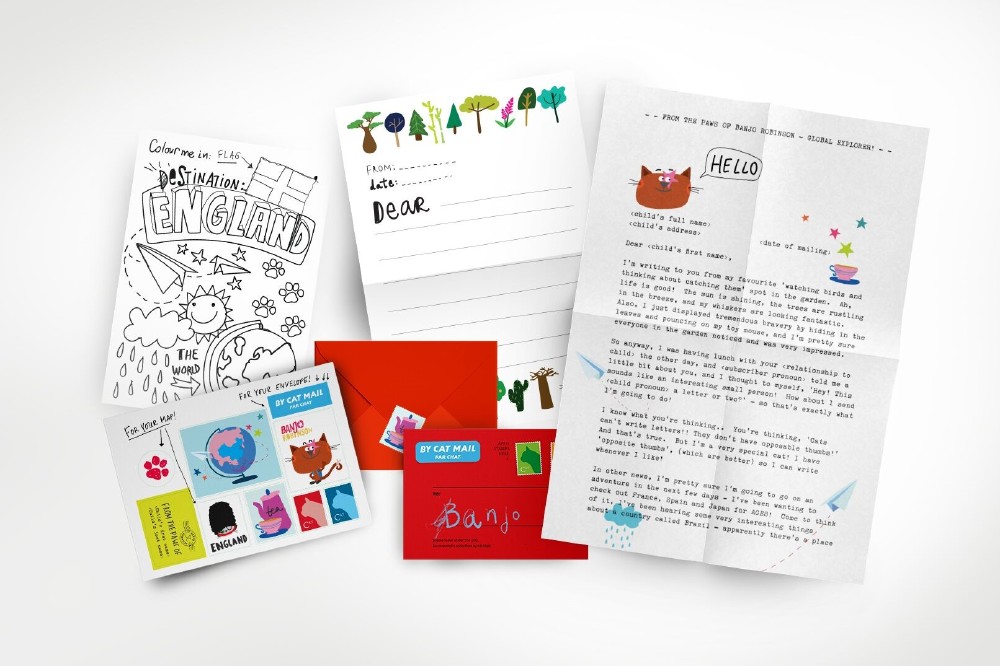One of the great pleasures in my life has always been receiving a personal letter in the post. Knowing that someone has sat down to write their inner-most thoughts in order to entertain me is an enormously moving and exciting thing.

Parenting on Female First
When I was a child, my dad used to send me beautiful letters. I remember the feeling of delicate writing paper and the thick brown envelopes – the delight of seeing my full name written out in his looping handwriting beside a proper stamp. I would squirrel myself away to compose my replies, imagining our words crossing continents and seas (though Dad was usually just downstairs) and treasured the bundle of post, carting it with me from house to house over the years, a reminder of a lovely time.
Letter writing is now somewhat of a lost art. From a very early age children are accustomed to fast communications. To emails that are written and sent in haste, and to text messages that are frequently just a series of hieroglyphs. The creative and sentimental art of putting pen to paper and painstakingly detailing your emotions and daily life can seem antiquated.

One of the key foundation stones upon which my company, Banjo Robinson, was built was that of encouraging children to resurrect this lost art. Not only is letter writing a wonderfully creative activity but writing by hand is also something that ought to be encouraged in our digital world.
Banjo Robinson is a pen-pal subscription service for children aged 5-8 based on Banjo, an intrepid cat who grew up doing normal cat things on a perfectly nice English farm. One day, Banjo (after meeting a very influential migrating swallow who tells him about her adventures) decides that he must see the world. As we speak, he’s travelling to exciting destinations across the globe and sending personalised letters to children from the countries he visits. Each letter is full of facts about the places he goes, funny tales of the animals he meets along the way and little creative challenges. As well as educating the recipient about the countries he travels to, he encourages them to write back and provides the stationery upon which they can do so.

Writing by hand has been proven to be enormously effective from a developmental point of view. When you write, you are physically committing to putting words on a piece of paper, considering the right words to express something and ensuring you’re using the correct grammar and spelling. It takes more effort than using technology, but it’s been proven that it’s an effort worth making. That painstaking practice makes perfect!
Others say that writing by hand can aid fine motor skills and physical coordination, as well as rhythm, stamina and posture. Writing is also a liberating and cathartic activity, allowing you to slow down and think about how events in your life have made you feel. In our fast-paced world this kind of therapeutic channel can be an enormously rewarding; giving children an outlet to find their voice and express themselves.
In short, it’s my opinion that we shouldn’t allow the art of writing by hand to be forgotten. Not only is it a genuine pleasure to receive a personal letter, but it has been proven to be beneficial both physically and mentally to put pen to paper, whether you’re writing a journal or corresponding with a cat.

Written by Kate Boyle

